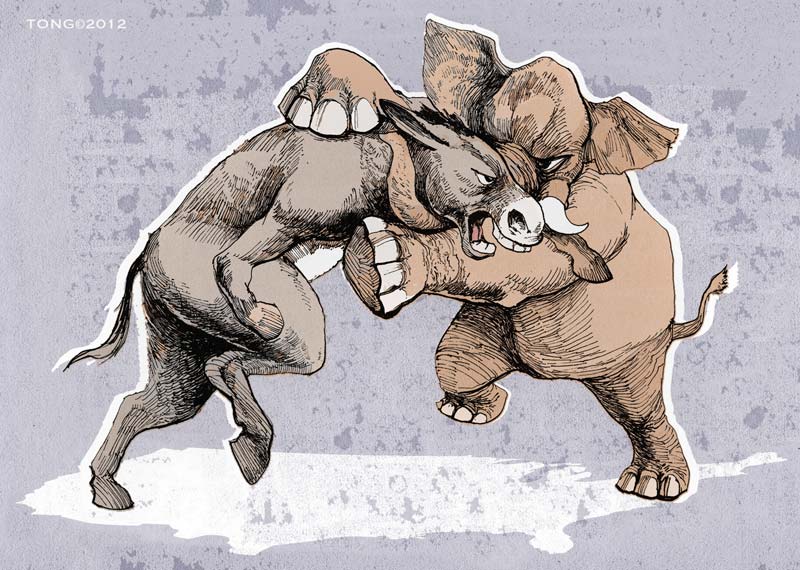
This might sound strange to some readers. I've written a lot about our problem with tribalism, including hyper-partisanship and political polarization. It was a major theme of my cheerily titled book "Suicide of the West. So I'm happy to concede that too much partisanship -- or partisanship of the wrong kind -- can be very bad.
But unity can be bad too. Excessive unity cultivates groupthink and breeds contempt for dissent. It tends to ride roughshod over minorities, and not just in the sense of racial, religious or sexual groups. Ideological minorities -- including the smallest minority, the individual -- can get trampled by the unity stampede (as my friend
Self-described nationalists insist the country needs more unity -- around their ideas. Self-described socialists also crave unity, but only around their agenda. At various times and places, Catholics, Protestants, Muslims and Hindus have all strived for unity, but only on their terms. In any large society, the demand for unity is usually the demand for power in a winner-take-all contest between different groups.
Our
Ironically, the founders never envisioned political parties as a major component of this system.
It was
"Party unity was premised on having another party, a common enemy, to oppose," Postell notes in a brilliant paper published by the
Think of it this way: Courtrooms are partisan battlefields. The defense attorney is a zealous advocate for acquittal. The prosecutor is equally passionate about conviction. Both sides must deal honestly, but it is the competition between the two sides, the questioning of evidence, the inquiry into motives and methods, that produces a just outcome. Of course, sometimes it goes wrong. But it's the best system we've got.
This is how the good kind of partisanship is supposed to work. Partisans have all manner of incentives to poke holes in the opposition's arguments and proposals -- some patriotic and principled, some more base and selfish. But the process of political combat, which is supposed to take place in
It's a cliché to note that the party out of power only cares about deficits and debt when it is out of power. This hypocrisy is annoying and at times dishonorable. But it's better than the alternative. If it's true that unlimited borrowing, mostly from
This week we crossed a Rubicon with the new bipartisan budget deal proposed by President
Liberty-loving columnists delivered to your inbox. FOR FREE. Sign up for the daily JWR update. Just click here.
(COMMENT, BELOW)
Jonah Goldberg is a fellow at the American Enterprise Institute and editor-at-large of National Review Online.


 Contact The Editor
Contact The Editor
 Articles By This Author
Articles By This Author